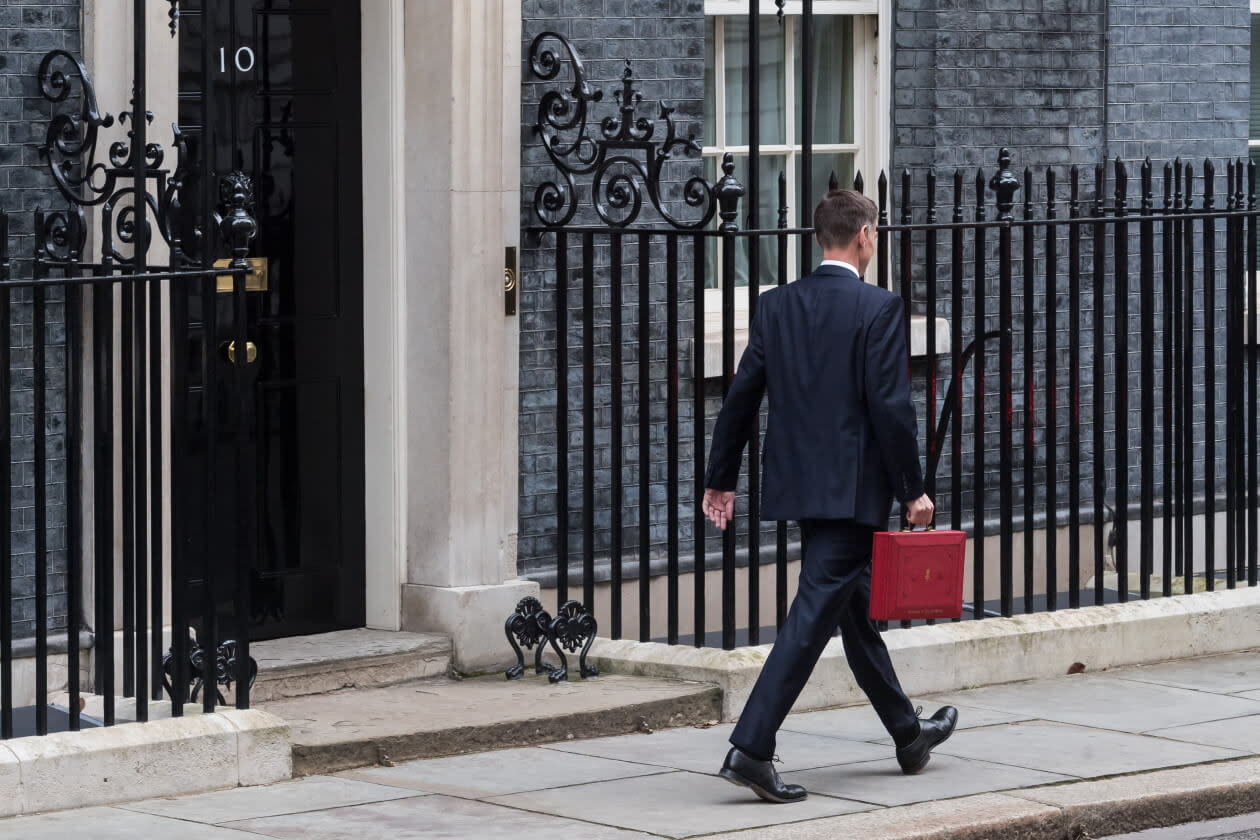Chancellor of the Exchequer Jeremy Hunt has delivered the 2024 Spring Budget.
From a 2p National Insurance (NI) cut to consultation on a new British ISA (also called a UK ISA), Hunt laid out his plan to create more jobs, more investment and lower taxes.
Here are some of the main takeaways from the 2024 Spring Budget and what it could mean for you and your money.
A further 2p cut to National Insurance will be introduced from 6 April 2024 – worth around £450 a year for someone on an average salary.
A new ‘British ISA’ will be created in the form of an extra £5,000 tax-free allowance for the public to invest exclusively in UK.
From April 2024, the government will raise the threshold for the high-income child benefit charge to £60,000, taking 170,000 families out of paying this tax – nearly half a million families will gain an average of £1,260 in 2024-25.
Fuel duty will stay frozen for the next 12 months, with the temporary 5p cut extended – set to save the average driver £50 next year.
Alcohol duty will remain frozen until February 2025.
Higher-rate property capital gains tax reduced from 28% to 24%.
This article isn’t personal advice and is based on our understanding of the Budget. Unlike cash, investments can fall as well as rise in value, so you could get back less than you invest. ISA, pension, and tax rules can change, and any benefits depend on your circumstances. Tax rates and bands are different for Scottish taxpayers. If you're not sure what's right for you, ask for financial advice.
National Insurance cut by 2p – what does it mean for you?
It’s the least surprising announcement in the 2024 Spring Budget, and it’s nowhere near as far-reaching as an income tax cut, but the 2p NI cut will make a real difference to how much people have in their pockets.
The more you earn, the more you save, so someone on a salary of £30,000 will save £349 a year, someone making £40,000 saves £549, someone on £50,000 saves £749, and anyone making over the higher rate tax threshold saves £754.
These kinds of figures are not to be sniffed at, particularly for anyone being squeezed by higher mortgage payments or facing the multitude of price rises coming in ‘Awful April’.
Unfortunately, there’s no relief for those past State Pension age – who don’t pay NI – or those earning income from investments.
It’s one reason why it makes sense to consider using your ISA allowance where you can, so you’re not relying on the generosity of a chancellor with each passing Budget.
But NI is only one part of a wider tax picture, which is growing gloomier.
This April we’ll see another freeze in the personal allowance and the higher-rate tax threshold. The Office for Budget Responsibility (OBR) says we’ll see 1.1 million more people dragged into paying income tax and 800,000 more forced to pay higher-rate tax.
It means we can’t look at a NI saving in isolation. We’re still locked into a freeze that means over time we’re going to see our tax bills continue to rise. And because more of the benefit of cuts goes to higher earners, those on lower earnings will suffer particularly.
When you factor in both the NI cut and the tax threshold freezes, those earning less than £19,000 will actually be worse off.
A new ‘British ISA’
ISAs are a popular product which helps get people investing for the first time, it’s vital we keep this framework simple.
We welcome the launch of the consultation which considers how to revitalise UK listings with a British ISA.
We’ve heard the calls around improving liquidity in London markets, especially at the small and mid-cap end. Here retail investors have an important role to play. Our clients are already enthusiastic UK investors with 83% of shares held in UK listings.
With over 1,000 UK shares available on our platform, there’s plenty of choice. In our response to the consultation, we’ll explore how best to support these investments.
A new British savings bond from NS&I
Mark Hicks
Head of Active Savings
The savings landscape has a new British landmark, with a British savings bond from NS&I, which will offer a guaranteed savings rate over three years.
All eyes will be on the rate available, because even savers who want to buy British with their cash will not want to accept a disappointing rate in return.
With the Bank of England predicted to cut interest rates in the coming months, savers will need to think carefully whether they want to wait for this bond – with no certainty about the return on offer, or fix now, while they can still secure a great rate.
Savers are increasingly wanting their money to be accessible. Given this is a three-year bond, it will need to be a very attractive rate to inspire much interest from savers.
Child benefit boost for single parents and victims of fiscal drag
The government have announced they’ll be changing the higher income child benefit charge. From April, it’ll raise the threshold from £50,000 to £60,000 and the top level of withdrawal to £80,000.
This will move 170,000 families out of this charge and the government estimates nearly half a million families will save an average of around £1,260 per year.
The child benefit rules that penalised single parents were always incredibly unfair. It’s hard enough managing a household on a single income, without the system being stacked against you, so the decision to move to a household basis by 2026 is a welcome change.
The overall threshold for couples was raised too. After a decade of being rooted to the spot, it meant far more people were dragged into repaying this benefit.
This will be welcome, but there was scope for a bigger rise. However, today’s change is a step in the right direction, and will still make a real difference to an awful lot of families.
As we dive deeper into the 2024 Spring Budget changes, there will be plenty more to come.
To make sure you don’t miss out on what all this means for you and your money, sign up to our new ‘Monday Money Matters’ personal finance newsletter.
Anadolu / Contributor via Getty Images




